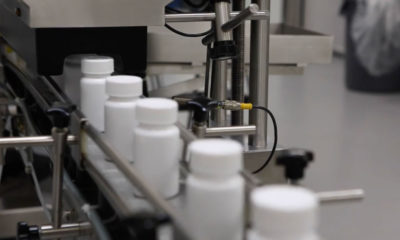Some scientific studies indicate that current vaccines may have an impact against the coronavirus. However, other experts say that the research doesn’t provide positive proof.
It is known that some vaccines provide broader protection against illnesses than what they were originally intended for. Though they may target one type of infection or illness, they may be beneficial against other medical concerns. Some scientists are now turning to these vaccines to see if they can have an impact on the coronavirus as they wait for a new vaccine to be developed.
The vaccines for tuberculosis and polio have shown indications that they may work with the immune system to help it respond to other infections. The infections that respond include those from viruses, bacteria and parasites.
A study that has been conducted on those who have been vaccinated for childhood illnesses, such as polio, measles, mumps, and rubella as well as people who had the flu vaccine. Researchers suggest that they may have a lower infection rate for coronavirus than those who haven’t been vaccinated.
Other experts are skeptical about the findings. The paper done on the study showed that the information came from electronic health records. However, it hasn’t gone through the normal peer review process. It also hasn’t been accepted by any medical journals.
Even the critics agree that the study does provide a hypothesis that could be further investigated. At the same time, they caution that the information doesn’t prove a cause and effect situation.
Findings of the Study
The study utilized immunization records from more than 137,000 patients. They had all been tested for the coronavirus. The researchers divided them into groups of vaccinated and unvaccinated. Research showed that patients who had a lower infection rate had either been vaccinated against childhood diseases or had recently received a flu vaccine.
The amount of risk reduction would vary based on which vaccines they had received and how recently they occurred. From the research, it appeared that those who had been vaccinated as children had a lower rate of infection from the coronavirus than those who had received a flu vaccine more recently.
Researchers went to great lengths to account for any variables between the patients, such as age, ethnicity and geographical location. Some critics suggest that the efforts weren’t strong enough. According to the researchers for this study, they are testing the belief that the memory of the immune system is stimulated by a vaccine.
One significant finding in the study was that black patients who had been given the pneumonia vaccine five years earlier had a dramatically lower risk of a positive COVID-19 test than those who hadn’t gotten the vaccine.
Some scientists admit there is plenty of evidence that vaccines can have a positive impact on illnesses beyond what they were designed for. However, they are hesitant to support the findings of the study. They do admit this is a place to begin conducting further research to determine if a current vaccine could be the answer to the coronavirus.































